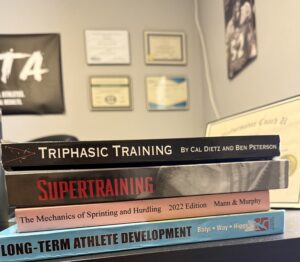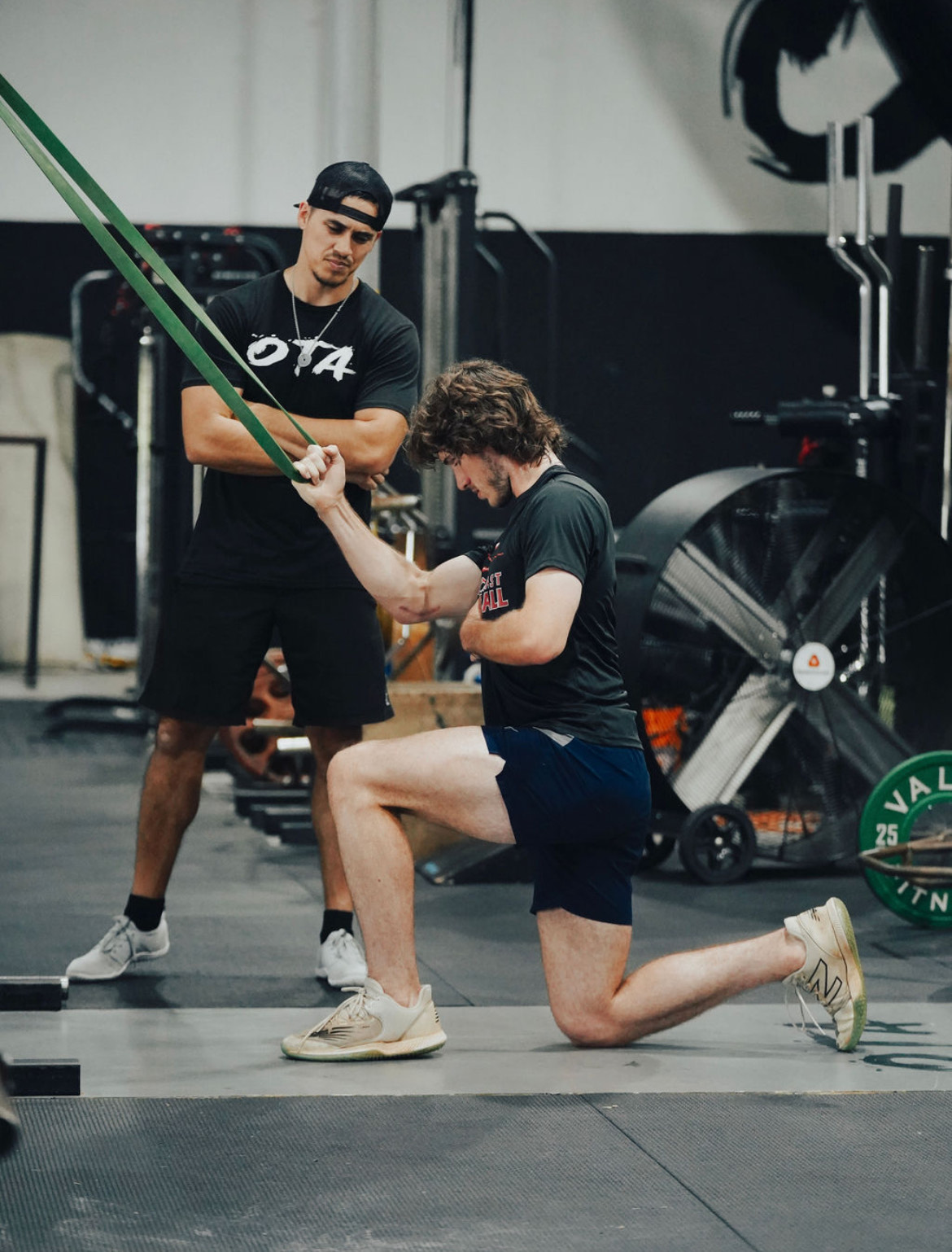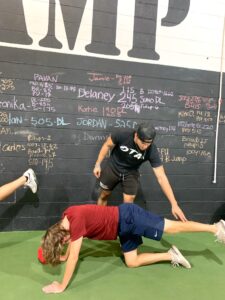Coaching Starts as a Passion
Anybody who gets into coaching does it initially because they have a passion for it. Either a passion for training, for sports and athletics, human movements, working with people, etc. It starts out as a passion and then as you keep growing, can become a career. But how do you turn it into something viable to make a living off of?
Performance coaches are not getting the same title or prestige like a doctor or lawyer would. Coaching has always been almost viewed as nothing but a side hustle for young people and not as a sustainable career. Mind Pump shared years ago that almost 90% of coaches and trainers don’t make it 5 years in the industry. This is after graduating or getting certified and usually due to financial struggle and burn out.
It’s a Grind, but Rewarding
They struggle with the workload and the grind. They struggle finding clients and with retention. My first few years as a coach, I was bouncing between a few different gyms, internships, and serving tables while I worked to get my career going. But I was obsessed with the desire to work with athletes and do it at an elite level.
 If you can persevere and do the work until you make a living, it is an insanely rewarding job. It’s an amazing feeling when some of the athletes I’ve trained and developed for years are rewarded with the opportunity to play at the next level. Some of them getting playing time as college freshman and playing well.
If you can persevere and do the work until you make a living, it is an insanely rewarding job. It’s an amazing feeling when some of the athletes I’ve trained and developed for years are rewarded with the opportunity to play at the next level. Some of them getting playing time as college freshman and playing well.
Starting in athletic performance training, most coaches have it in their head they’re going to be working with the best athletes around. Coaches expect they’ll be working with a specific niche athlete right from the start, but then reality hits. They struggle to find those athletes and keep them and struggle with the amount of work they have to do.
The fact is, as with any job, there’s a lot of work you’ll have to do in the background. Work that you shouldn’t expect to make money off of because it’s toward improving yourself as a coach and further helping your athletes.
Coaches Can’t Be Entitled or Complacent
There’s been many young coaches and interns who come into our facility and don’t expect the amount of work it takes behind the scenes. They don’t realize that they won’t immediately get to work with the athletes they want. They don’t realize the work required that doesn’t have immediate financial reward. These coaches will quit before 5 years.
When I started, I expected athletes to want to work with me. It didn’t take long before I was desperately training any person I possibly could because I realized I needed more experience and education. Regardless of your qualifications or education background, a question every coach needs to ask themselves is, “Why should an athlete want to work with me?”
Nobody you train will care about your education or knowledge. That’s not going to be what makes them sign up and work with you for a long time. There’s a lot of work that has to be done to find the athletes you want, and then a lot more work in order to keep them.
So, I wanted to write this and share some non-negotiables that are part of the job of being a coach. When I say non-negotiables, I’m referring to tasks and work that is simply part of being a coach and that shouldn’t expect extra money for. The money comes by consistently doing these things and getting your athletes results. All a coach needs is organization and work ethic.
Coaching Non-Negotiables
Programming
Every coach should be able to design programs. That is just undeniably part of your job as a coach. Outside of building programs to sell online, if you’re just in the gym working with people daily, this becomes non-negotiable.
You should not have the expectation to be paid for every little workout you write. To me, that is asinine. There’s been more times than I can remember where I’ve designed programs and workouts for free for my athletes. This is just part of the service you’re providing.
In my eyes, this helps with building trust and buy in. Athletes see that you really want to give them resources and help them. I’m not talking about building full programs for the year. But little programs and daily workouts here and there, that’s just part of the job.
Calling Leads/Lead Follow Up
You’re not going to be a successful coach if you aren’t coaching anybody.
Marketing is an entire other subject. The hard part is doing the mundane work nobody likes to do of actually getting leads on the phone and in the door. Nobody enjoys cold calling random strangers, but as a coach you’re just going to have to get over that. This is just another part of the job that is simply a requirement, and you have to do it whether you like it or not.
If you’re part of a company or gym that just feeds you athletes, then you’re fortunate and better not take it for granted. But at some point, you’re going to have to find your own and it’s either sink or swim.
Continual Education
 Coaching is a never-ending journey of education and growth. If you want to continue to rise and produce better and better athletes, than you have to be continually investing in yourself and your own education and skill. If you aren’t growing, you’re dying. You’ll become complacent and stagnant. It doesn’t matter if you just got a basic certification or finished a master’s degree, if that’s where your education ends, you will never succeed.
Coaching is a never-ending journey of education and growth. If you want to continue to rise and produce better and better athletes, than you have to be continually investing in yourself and your own education and skill. If you aren’t growing, you’re dying. You’ll become complacent and stagnant. It doesn’t matter if you just got a basic certification or finished a master’s degree, if that’s where your education ends, you will never succeed.
I am constantly searching for more education on nutrition, speed mechanics, vertical training, strength methods, and just overall human performance. Learning these things excites me and I know the more I can learn, the better service and training I can provide for my athletes to make them better. It doesn’t have to be an expensive certification, either. There are so many amazing books on strength and conditioning and performance out there. Discipline yourself to sit down and study.
This investment into yourself will pay you back in being able to work with more and more athletes the better you become at your craft.
Conclusion
Here is my list of 3 things that you shouldn’t expect to be directly paid for but are simply part of the job of being a coach. There are more of course, but these are the big three that jump out in my mind. As I said at the start; coaching starts out as a passion, and if you’re in it believing you’ll make a lot of money at first for every little thing, you’ll be disappointed and burn out. It is going to take a lot of work, grinding, and commitment to getting your athletes results before it becomes a financially viable career.
I’ve seen many coaches and interns come and go. Almost seems like they aren’t prepared for all the actual work that comes with being a coach. Either they don’t want to do it, or they think they’re supposed to be paid more for it.
Being a coach can be a good living, but not if you JUST coach. Get comfortable doing a lot of different things and a lot of roles. Coaching is glamorized on social media, but the real work isn’t very glamorous. Make sure you’re aware of that as you pursue a career in coaching.
If you are looking to get certified or continue your education for training athletes, please check out our OTA University Performance Coach certification! Click the photo to apply!


